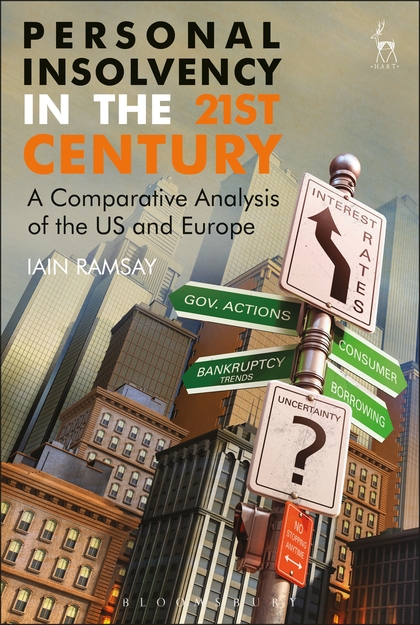Professor of Law Iain Ramsay has authored a book which provides a comparative analysis of the development of personal insolvency law since the late 1970s, and questions its contemporary impact at a time where a significant number of people live close to the precipice of over-indebtedness.
Published by Hart Publishing, Personal Insolvency in the 21st Century: A Comparative Analysis of the US and Europe, presents case studies of personal insolvency law in the US, France, Sweden, and England and Wales. The book examines the role of interest groups and distinct narratives in shaping reform in different countries while drawing attention to the role of timing, path dependency and unintended consequences in the development of personal insolvency law. It provides an analysis of the development of EU harmonisation of personal insolvency law in response to the Great Recession of 2008, and asks whether the international emergence of individual personal insolvency law represents a progressive step or a band-aid for the costs of neo-liberal policies.
The publication is a comprehensive and substantial analysis, which reflects Professor Ramsay’s standing as a world-leading expect on personal insolvency law and the regulation of consumer credit. Professor Ramsay has written extensively on comparative consumer insolvency, has conducted ground breaking empirical research on personal insolvency in Canada, and in 2013 co-authored a World Bank report on personal insolvency that has been influential in reform discussions in countries including Brazil, Colombia, South Africa and India.
Personal Insolvency in the 21st Century: A Comparative Analysis of the US and Europe is the culmination of research supported by a Fellowship from the Leverhulme Trust.
Professor Ramsay writes regularly about international developments in credit, debt and insolvency on his blog CreditDebtandInsolvency. A summary lecture by Professor Ramsay entitled Should Households Repay Their Debts?, part of the University of Kent’s Think Kent video series, is available on YouTube. Read more about his research interests and publications on his staff profile.

